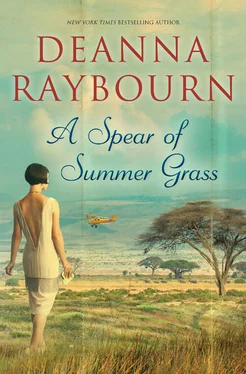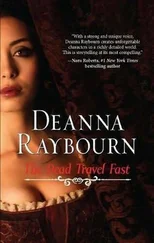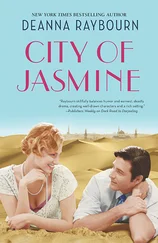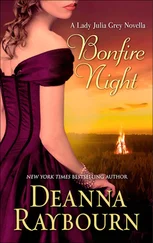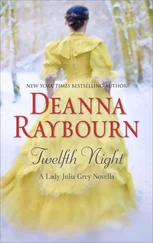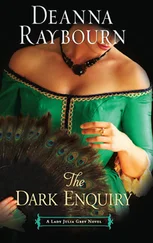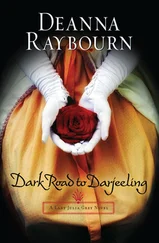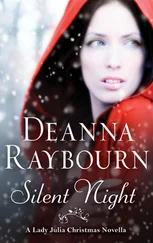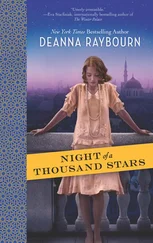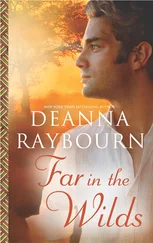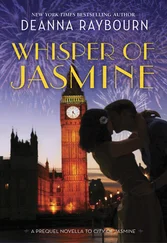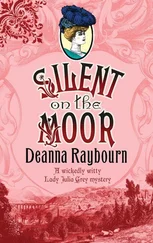I looked around the room, smiling at each of the gentlemen in turn. Nigel, my former stepfather, was a rotund Englishman with a florid complexion and a heart condition, and at the moment he looked about ten minutes past death. Quentin Harkness was there too, I was happy to see, and I stood on tiptoe to kiss him. Like Mossy, I’ve had my share of matrimonial mishaps. Quentin was the second. He was a terrible husband, but he’s a divine ex and an even better solicitor.
“How is Cornelia?” I asked him. “And the twins? Walking yet?”
“Last month actually. And Cornelia is fine, thanks,” he said blandly. I only asked to be polite and he knew it. Cornelia had been engaged to him before our marriage, and she had snapped him back up before the ink was dry on our divorce papers. But the children were sweet, and I was glad he seemed happy. Of course, Quentin was English. It was difficult to tell how he felt about most things.
I leaned closer. “How much trouble am I in?” I whispered. He bent down, his mouth just grazing the edge of my bob.
“Rather a lot.”
I pulled a face at him and took a seat on one of the fragile little sofas scattered about, crossing my legs neatly at the ankle just as my deportment teacher had taught me.
“Really, Miss Drummond, I do not think you comprehend the gravity of the situation at all,” Mossy’s English solicitor began. I struggled to remember his name. Weatherby? Enderby? Endicott?
I smiled widely, showing off Mossy’s rather considerable investment in my orthodontia.
“I assure you I do, Mr.—” I broke off and caught a flicker of a smile on Quentin’s face. Drat him. I carried on as smoothly as I could manage. “That is to say, I am quite sure things will come right in the end. I have every intention of taking your excellent advice.” I had learned that particular soothing tone from Mossy. She usually used it on horses, but I found it worked equally well with men. Maybe better.
“I am not at all certain of that,” replied Mr. Weatherby. Or perhaps Mr. Endicott. “You do realise that the late prince’s family are threatening legal action to secure the return of the Volkonsky jewels?”
I sighed and rummaged in my bag for a Sobranie. By the time I had fixed the cigarette into the long ebony holder, Quentin and Nigel were at my side, offering a light. I let them both light it – it doesn’t do to play favourites – and blew out a cunning little smoke ring.
“Oh, that is clever,” Mossy said. “You must teach me how to do it.”
“It’s all in the tongue,” I told her. Quentin choked a little, but I turned wide-eyed to Mr. Enderby. “Misha didn’t have family,” I explained. “His mother and sisters came out of Russia with him during the Revolution, but his father and brother were with the White Army. They were killed in Siberia along with every other male member of his family. Misha only got out because he was too young to fight.”
“There is the Countess Borghaliev,” he began, but I waved a hand.
“Feathers! The countess was Misha’s governess. She might be related, but she’s only a cousin, and a very distant one at that. She is certainly not entitled to the Volkonsky jewels.” And even if she were, I had no intention of giving them up. The original collection had been assembled over the better part of three centuries and it was all the Volkonskys had taken with them as they fled. Misha’s mother and sisters had smuggled them out of Russia by sewing them into their clothes, all except the biggest of them. The Kokotchny emerald had been stuffed into an unmentionable spot by Misha’s mother before she left the mother country, and nobody ever said, but I bet she left it walking a little funny. She had assumed – and rightly as it turned out – that officials would be squeamish about searching such a place, and with a good washing it had shone as brightly as ever, all eighty carats of it. At least, that was the official story of the jewels. I knew a few things that hadn’t made the papers, things Misha had entrusted to me as his wife. I would sooner set my own hair on fire than see that vicious old Borghaliev cow discover the truth.
“Perhaps that is so,” Mr. Endicott said, his expression severe, “but she is speaking to the press. Coming on the heels of the prince’s suicide and your own rather cavalier attitude towards mourning, the whole picture is a rather unsavoury one.”
I looked at Quentin, but he was studying his nails, an old trick that meant he wasn’t going to speak until he was good and ready. And poor Nigel just looked as if his stomach hurt. Only Mossy seemed indignant, and I smiled a little to show her I appreciated her support.
“You needn’t smile about it, pet,” she said, stubbing out her cigarette and lighting a fresh one. “Weatherby’s right. It is a pickle. I don’t need your name dragged through the mud just now. And Quentin’s practice is doing very well. Do you think he appreciates his ex-wife cooking up a scandal?”
I narrowed my eyes at her. “Darling, what do you mean you don’t need my name dragged through the mud just now? What do you have going?”
Mossy looked to Nigel who shifted a little in his chair. “Mossy has been invited to the wedding of the Duke of York to the Lady Elizabeth Bowes-Lyon this month.”
I blinked. The wedding of the second in line to the throne was the social event of the year and one that ought to have been entirely beyond the pale for Mossy. “The queen doesn’t receive divorced women. How on earth did you manage that?”
Mossy’s lips thinned. “It’s a private occasion, not Court,” she corrected. “Besides, you know how devoted I have always been to the Strathmores. The countess is one of my very dearest friends. It’s terribly gracious of them to invite me to their daughter’s big day, and it would not do to embarrass them with any sort of talk.”
Ah, talk. The euphemism I had heard since childhood, the bane of my existence. I thought of how many times we had moved, from England to Spain to Argentina to Paris, and every time it was with the spectre of talk snapping at our heels. Mossy’s love affairs and business ventures were legendary. She could create more scandal by breakfast than most women would in an entire lifetime. She was larger than life, my Mossy, and in living that very large life she had accidentally crushed quite a few people under her dainty size-five shoe. She never understood that, not even now. She was standing in a hotel suite that cost more for a single night than most folks made in a year, and she could pay for it with the spare change she had in her pockets, but she would never understand that she had damaged people to get there.
Of course, she noticed it at once if I did anything amiss, I thought irritably. Let one of her marriages fail and it was entirely beyond her control, but if I got divorced it was because I didn’t try hard enough or didn’t understand how to be a wife.
“Don’t sulk, Delilah,” she ordered. “You are far too old to pout.”
“I am not pouting,” I retorted, sounding about fourteen as I said it. I sighed and turned back to the solicitor. “You see, Mr. Weatherby, people just don’t understand my relationship with Misha. Our marriage was over long before he put that bullet into his head.” Mr. Weatherby winced visibly. I tried again. “It was no surprise to Misha that I wanted a divorce. And the fact that he killed himself immediately after he received the divorce papers is not my fault. I even saw Misha that morning and stressed to him I wanted things to be very civil. I am friends with all of my husbands.”
“I’m the only one still living,” Quentin put in, rather unhelpfully, I thought.
I stuck out my tongue at him again and turned back to Mr. Weatherby. “As to the jewels, Misha’s mother and both sisters died in the Spanish flu outbreak in ’19. He inherited the jewels outright, and he gave them to me as a wedding gift.”
Читать дальше
